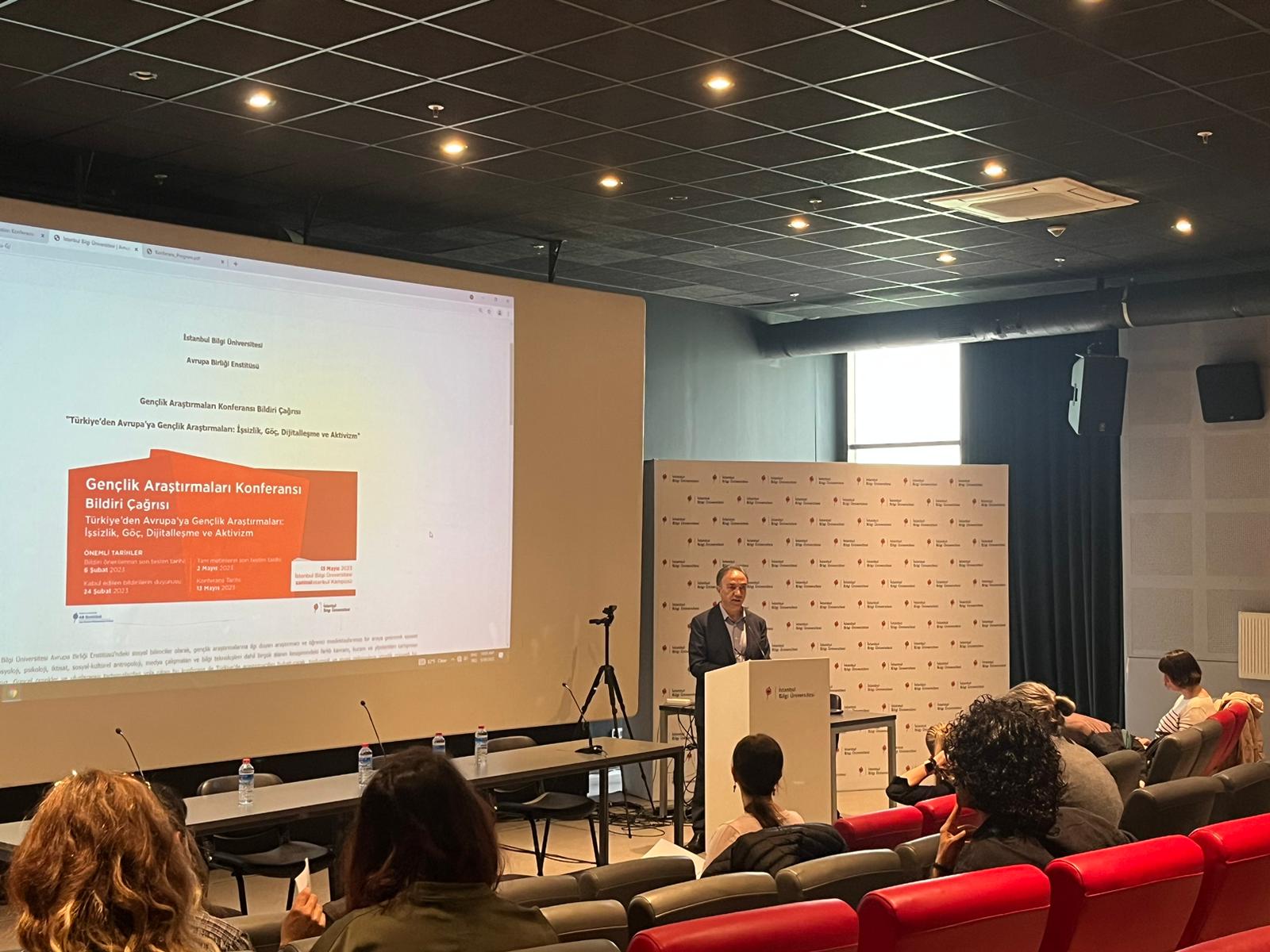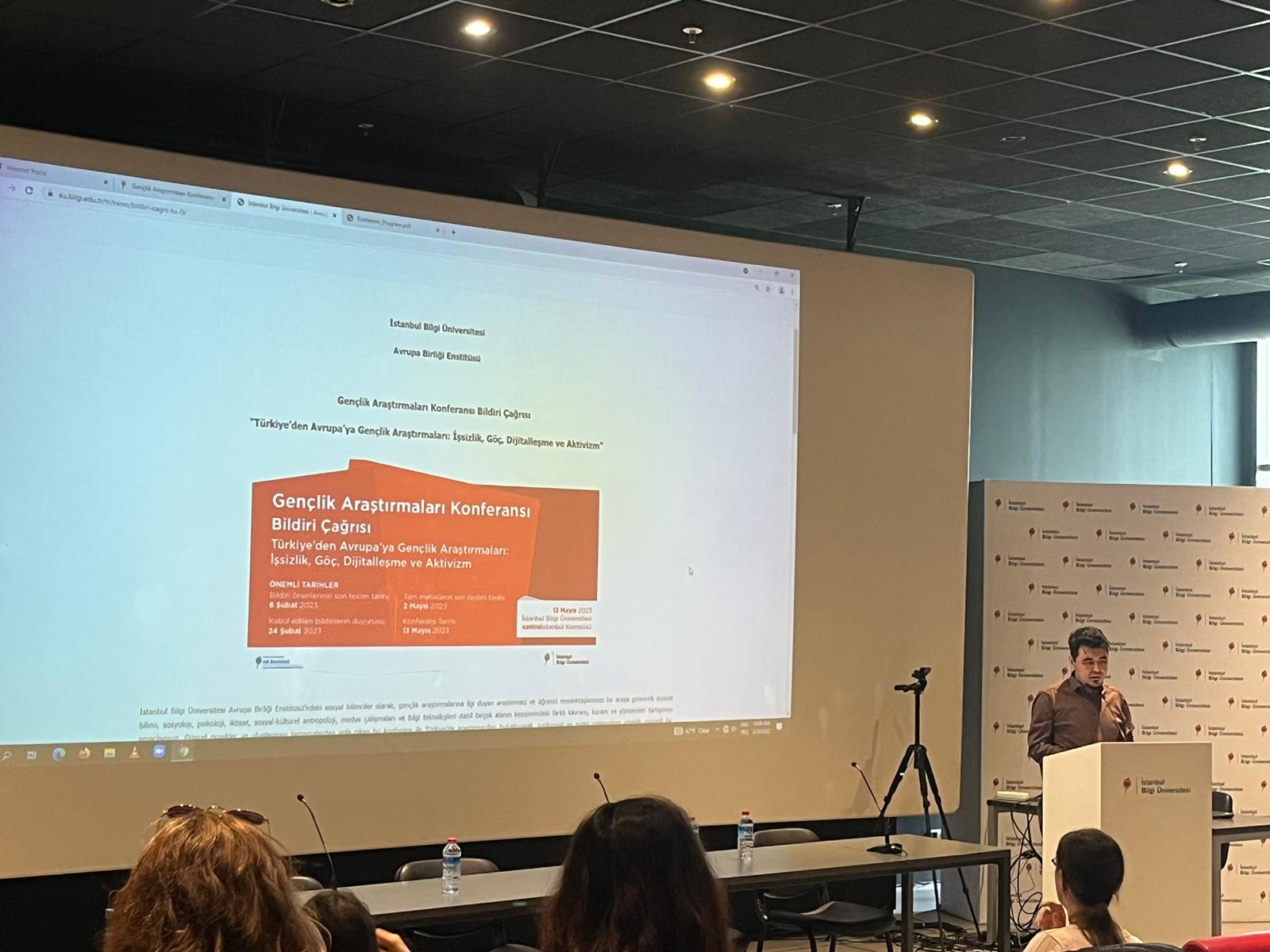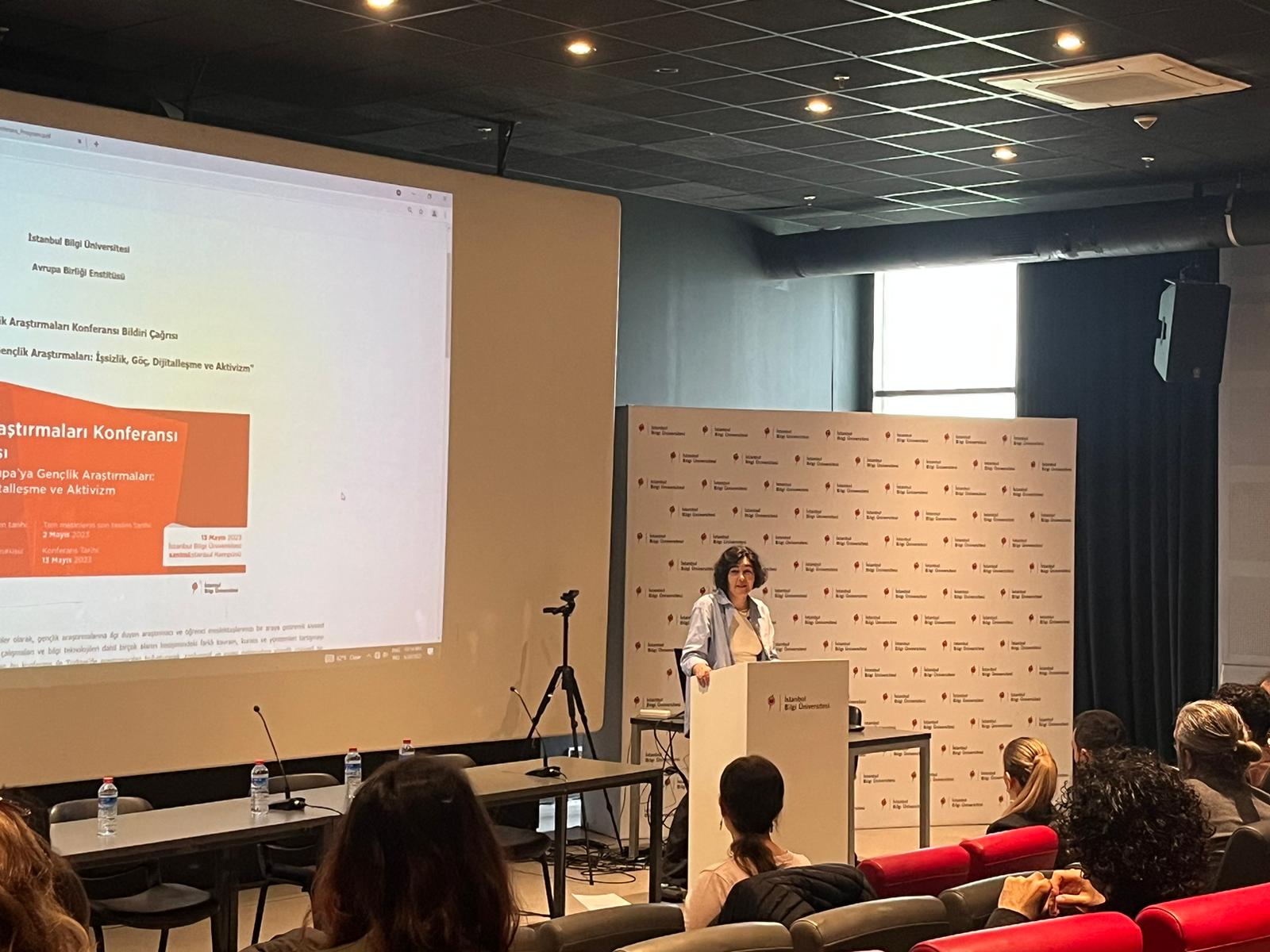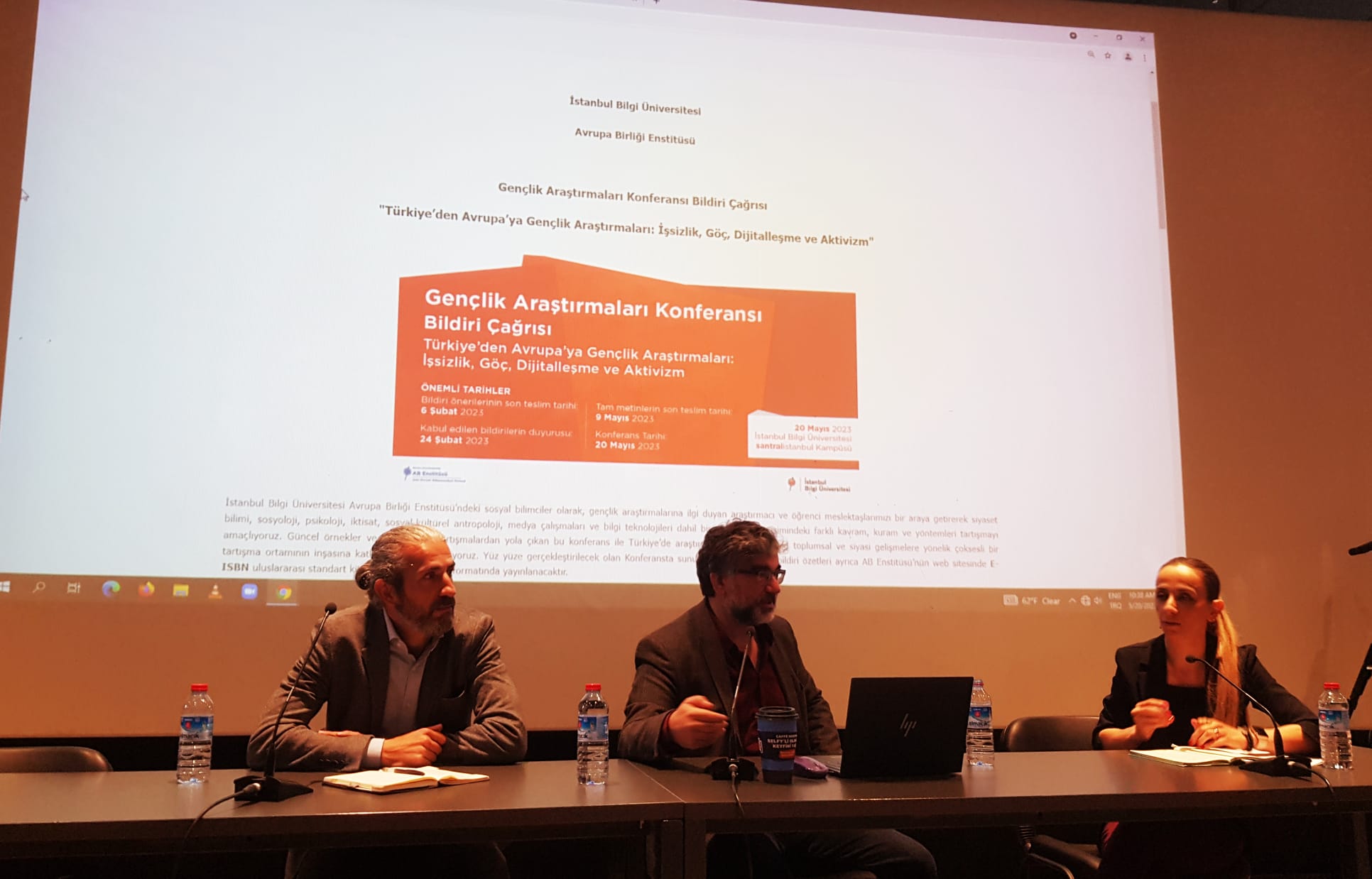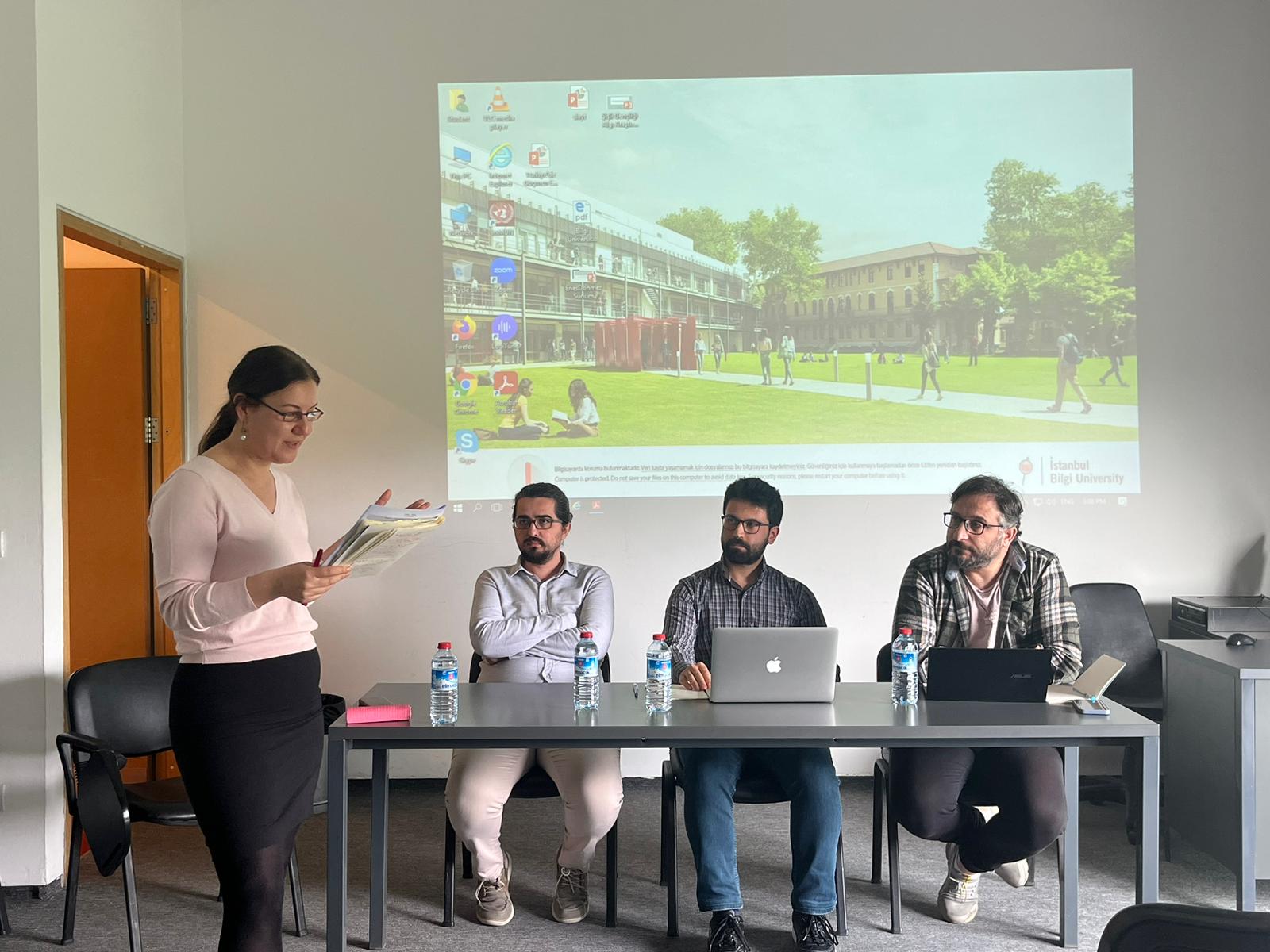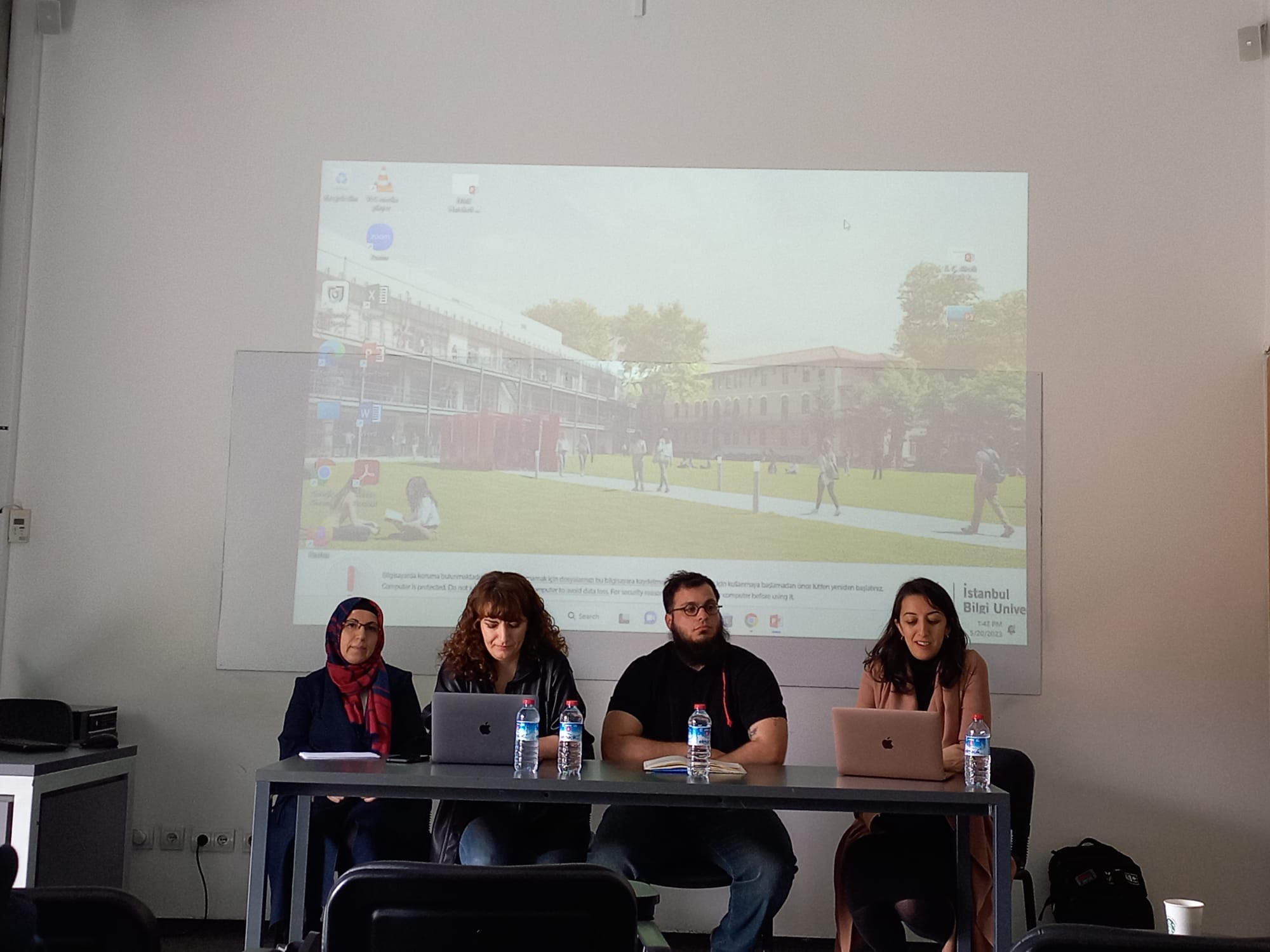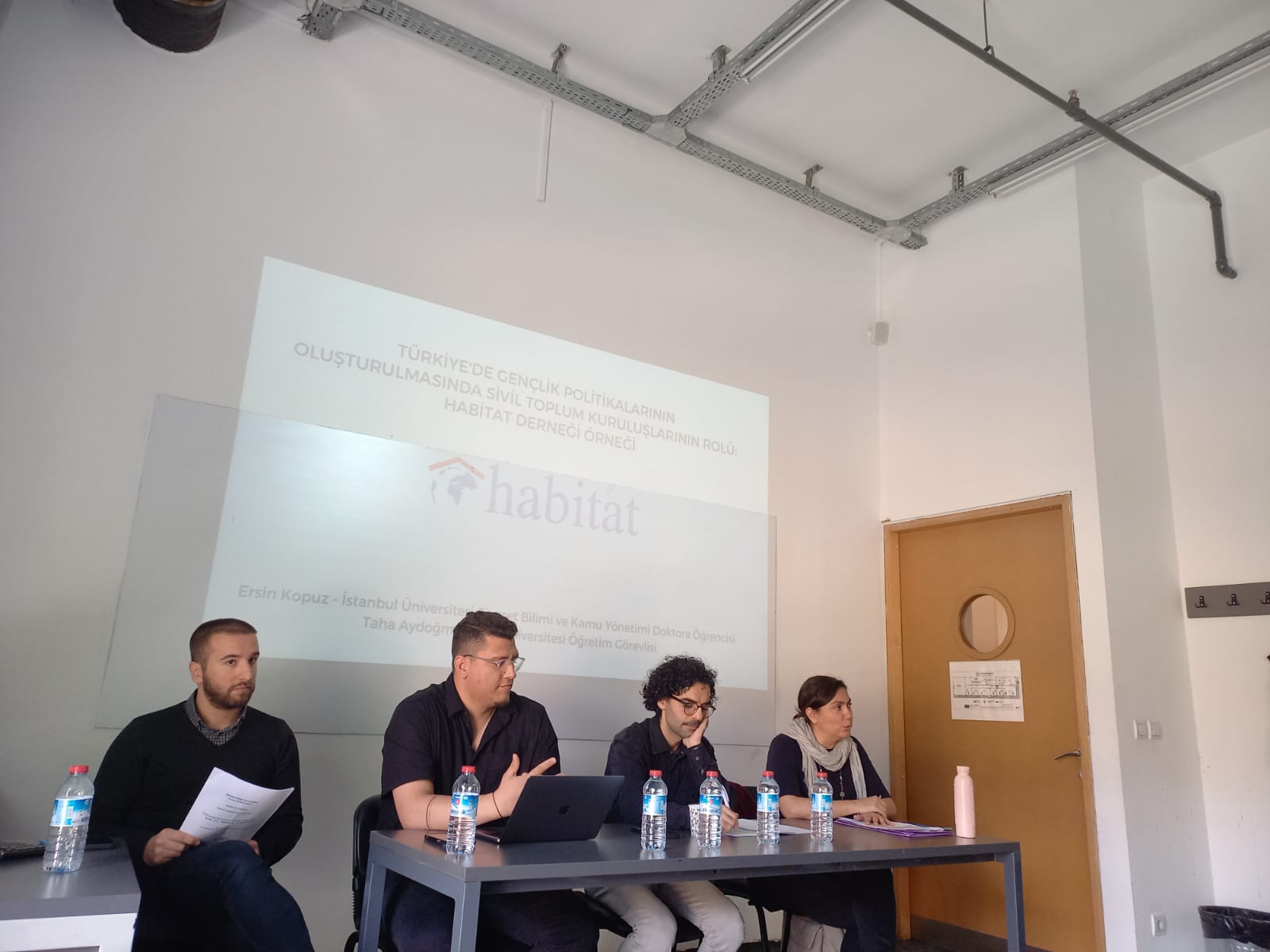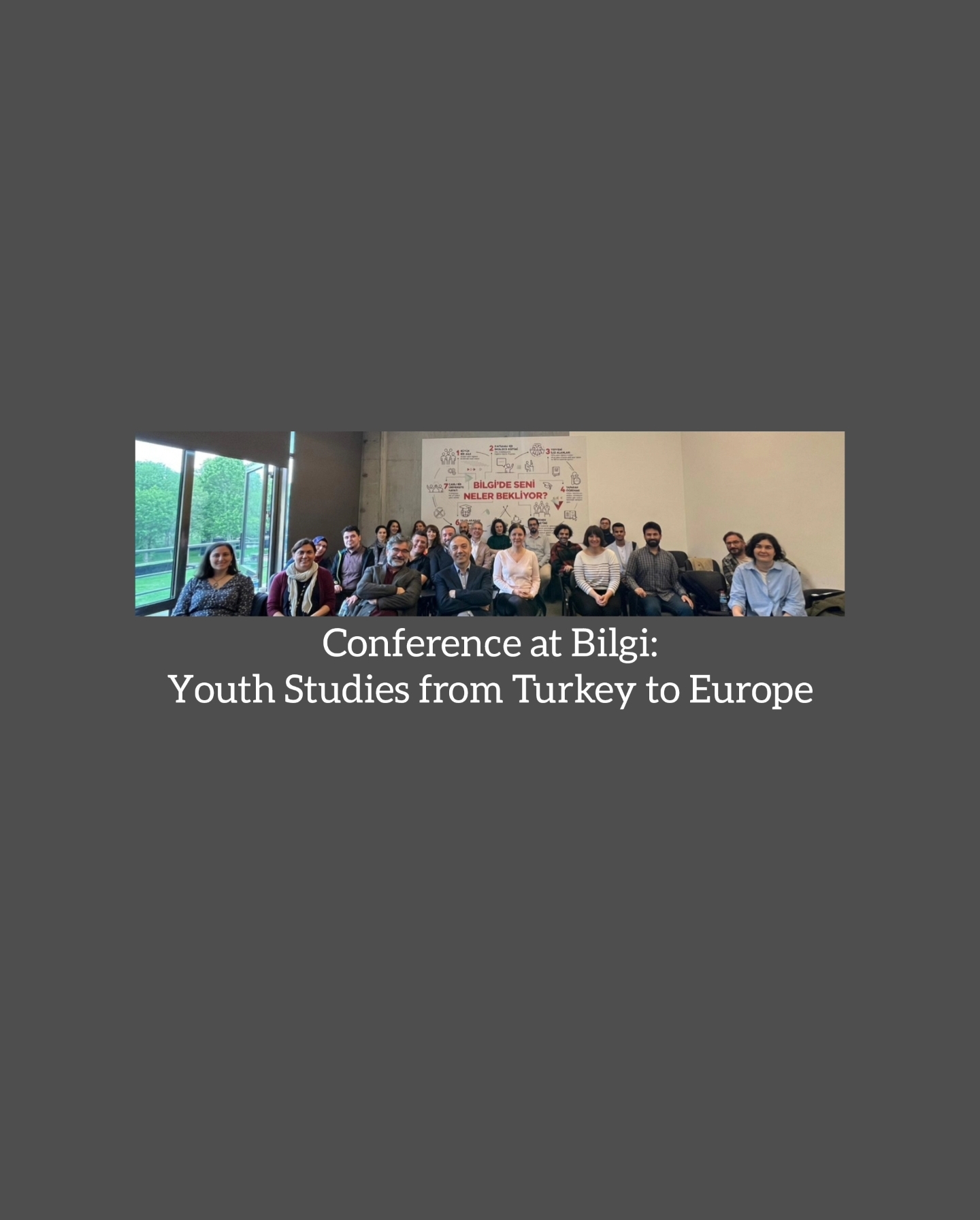
Youth Studies from Turkey to Europe: Unemployment, Migration, Digitalisation and Activism
In collaboration with the members of the Istanbul Bilgi University "Radicalisation Field of Excellence" and the European Institute, the PRIME Youth team organized a conference for researchers and students interested in youth studies. The conference aimed to discuss the concepts, theories and methods at the intersection of several fields, including political science, sociology, psychology, economics, social-cultural anthropology, media studies and information technologies. Addressing the recent national and international public debates, we aimed to make an inclusive discussion about the social and political trends in Turkey.
The opening speeches were made by the PRIME Youth principal investigator Professor Ayhan Kaya, the PRIME Youth postdoctoral researcher Dr Metin Koca, and the European Institute members Dr Deniz Güneş Yardımcı and Associate Professor Özge Onursal Beşgül. The full-day event has been followed by seven panels, with 27 panellists and nearly 50 participants from various academic and civil society organizations.
The main themes of the conference were as follows:
The past and the present of youth studies: Youth studies historically represented several missions. Among them are supporting young people through everyday work and in cooperation with civil society organisations, responding to their needs with a particular focus on unemployment, social inclusion and marginalisation, and facilitating their participation as individuals forming and voicing their demands. Our conference evaluated the current direction of youth studies in Turkey.
Inequalities in the age of virtual reality: The impact of digitalisation on youth is among the subjects of public debate. To what extent are "digital natives", who are believed to benefit from digital media much more than previous generations, able to take advantage of digitalisation's promise to equalise opportunities for education, social participation, negotiation, and consumption? To what extent can "digital immigrants", who organise the lives of the generation born into digital technologies, catch up with developments? Organised at a time when the pandemic has blurred the boundary between the virtual and the real, the conference questioned the possibilities of virtual developments to eliminate the inequalities that affect the daily lives of young people, or to give them a new dimension.
Alienation and migration: While becoming a "migrant depot" for young generations leaving the neighbouring countries, Turkey also became a case of "brain drain". The panellists questioned how to identify the causes and effects behind these processes, leading to concerns in both Turkey and Europe. As part of this endeavour, we questioned how culture shocks, power relations, economic difficulties, and the lack of upward mobility find their place in the narratives of migrants.
Activism and radicalisation: The conference focused on the current forms of youth political activity. We also questioned the intersection of these activities with radicalisation. Meanwhile, the panellists aimed to move radicalisation studies away from the perspective of securitization. As such, they examined the diversity of expressions of young people through feelings of inequality and injustice. Examples of such expressions included offensive humour movements, activist theatre and cinema, climate activism, gender activism and the new activisms combined with the new ethnocultural, religious and class-based ideological statements.
Letters and the generation identities: Given their upbringing under the pandemic conditions, their interrupted education life, new interests and curious voting preferences, "Generation Z" has become a unique and monolithic category for many. On the other hand, the boundaries between generations are a product of our collective imagination. Classifications based on the date of birth and indefinite or arbitrarily defined periods lead to concerns "against pseudoscience". Focusing on community and life course research, the conference members evaluated the scientific basis for generational differences.
----
Reported by Metin Koca, ERC PRIME Youth Project Post-Doc Researcher, European Institute, Istanbul Bilgi University
Our final conference program in Turkish, including information on the presenters & moderators, organization & scientific committees, speech titles & abstracts, and the main snapshots are as follows:




